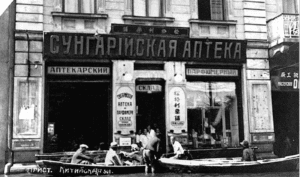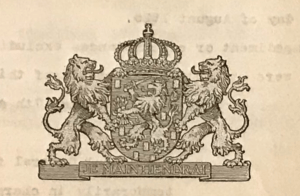
Pharmacy in 1920’s Harbin (dbs.bh.org.il)
Being a stateless person sucks. If you don’t believe me, ask the U.N.H.C.R., the United Nation’s Refugee Agency. In the East Asian context during the first half of the 20th century they were the Russian refugees fleeing from the Bolshevik Revolution (1917) or the subsequent Civil War (1918-1921) who experienced this condition and made it well-known for everybody in the region. The tens of thousands of White Russian émigrés who arrived to Chinese territories during the 1920s had to endure tremendous hardships. Not only that they were financially destitute and culturally alien in both the Chinese and other foreign “worlds”, but they also lacked consular representation. Between 1921-1924 the Soviet Union in a series of laws denaturalized those formerly Russian citizens who fled after the Tsarist regime’s collapse. The so-called Nansen Passports issued by the League of Nation were an attempt to give means of identification for them, but the ultimate solution was of course to obtain Chinese or another country’s citizenship. Masses of such impoverished Russians flooded the Shanghai French Concession that was complied to accommodate educated people with degrees and certificates earned in a different system. [Read more…] about When being an ex-POW is worse than being a stateless Russian. The case of a Yugoslavian pharmacist in Shanghai’s French Concession
